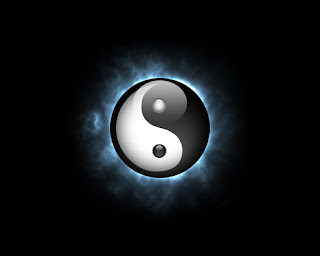Finding stillness in movement- dealing with the dynamics or work and life

So, this week has been really busy with surprises at work popping up around every corner.
This is the 8th month that I am working for myself without any staff.
Before this month I have been able to plan my day and see the planning through. Recently, though, I saw that I needed to accommodate urgent matters that have come up and had to try my best to squeeze in some extra work not planned for and reschedule some of the work I already had planned.
In this tumultuous week I have found that I started feeling frustrated, because I am used to seeing the end of the day ahead, the end of the days work quota and the point at which I could just put tools down and relax.
It is often at that time when I feel ready to call it a day when new work comes to surprise me.
In fighting I have found that the stressful part of it all is where you can't see the end of it.
That part where I can drop my guard and celebrate is not anywhere in sight while my opponent and I are engaged in championship sparring match or during a sparring exercise.
The thing is- if you experience this as well I can assure you that it is nothing new.
The Taoists have known about this long before these hurried times in which we find ourselves.
As a follower of Taoist and Zen philosophy I really value the times in which I can quietly meditate and renew my spirit. The calm at those times serve a purpose. There is another sort of calm- or "stillness", though which is more valuable to us as martial artists.
Bruce Lee referred to this stillness as "the stillness in movement". He was not the first to speak of it, though.
Those of you that have been out at sea on a fishing boat (I doubt that these modern ships can still make anyone seasick) might know very well that people who have their "sea legs" are not better off by being motionless at sea, but by being in harmony with the movement of the sea.
We also know that surfers and skateboarders stay on their boards while they are in motion because they have developed the ability to move with the board instead of trying to remain in one place.
Work and business have dynamic environments. You can't stay on top of these environments by keeping still or by trying to stop the dynamics within these environments.
Some people in management positions may know of the acronym "MBWA" that means "Managing By Walking Around". This particular practice is a means by which managers maintain control over their areas of responsibility not by sitting in an office and eating doughnuts, but by being in the environment and meeting occurrences as they arise.
To cultivate stillness within movement you need to learn to let go of certain preferences. Yes- we prefer our safe rourtines, we prefer to knock off at the same time every day and we prefer that everything goes as planned, but relying on these assumptions is what open us up to disaster.
I am not a fan of crisis management and I will never tell anyone to go through his day without planning. What I will say, however, is this-
Our plans are most often based on experience and acquired knowledge. That comes from the past. Planning can give you a set of guidelines to follow and give you a structure within which to work, but it will never cover every eventuality. The only way you can meet the uncertainty of the future is by being flexible and adaptable.
Karate people have free sparring of course to teach them these things.
I love Wing Chun's sticking hands, though. It uses fewer parts of the body than karate sparring, but is still an excellent exercise. I found this video on Youtube in which the teacher seems to combine Taiji's pushing hands with Wing Chun's sticking hands. It is an excellent demonstration of this principle...
I hope everyone has a really good weekend and a really good week ahead.
https://youtu.be/0b_WXt-L8b8



Comments
Post a Comment